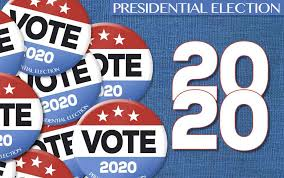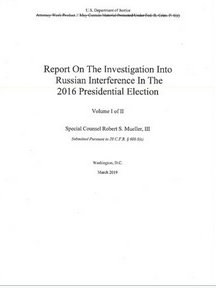This post concerns process as much as any substantive topic. Hopefully, it provides insight into how the three of us think, evaluate, and conceptualize issues. It originated in thoughts
Henry expressed about the capacity of voters and the public for sorting out complex issues and making nuanced judgments. Today’s politics, about which we so often write, forces difficult choices. Many issues are far  from simple and may implicate moral and ethical dilemmas juxtaposed against deeply held social and ideological positions. Operating in the public sphere today offers few easy moments. Often no good choices exist.
from simple and may implicate moral and ethical dilemmas juxtaposed against deeply held social and ideological positions. Operating in the public sphere today offers few easy moments. Often no good choices exist.
 from simple and may implicate moral and ethical dilemmas juxtaposed against deeply held social and ideological positions. Operating in the public sphere today offers few easy moments. Often no good choices exist.
from simple and may implicate moral and ethical dilemmas juxtaposed against deeply held social and ideological positions. Operating in the public sphere today offers few easy moments. Often no good choices exist.
Henry’s Optimism
We live in different cities, so we frequently communicate by text, though we also confer regularly by telephone about the substance of our
writing. One of us sees an idea in the day’s news or runs across an intriguing thought in an article or book. We ask for each other’s reaction to this or that development in the impeachment saga, foreign affairs, sports, or an aspect of interpersonal or family relations.
One day recently, in a series of text messages, we considered the capacity of Americans for making fine distinctions between pieces of evidence in the impeachment inquiry. Henry expressed confidence a large part of the public can sort and sift through the evidence, making intelligent decisions about such things as which acts of President Trump constitute impeachable offenses and which don’t. We recognized the impeachment enterprise could require understanding the difference, for example, between criminal acts and those which, though technically not a crime, still might constitute an impeachable abuse of power.
The Dissenters Respond
Woodson and Rob disagreed. Their text messages asserted that many members of the American
electorate can’t regularly make those distinctions. Such individuals rely on and adopt slogans and spin generated by political leaders with an agenda. Woodson and Rob pointed out, for example, our recent experience with the Mueller Report.
One reason the early spinning by Attorney General Bill Barr derailed the potential impact of Mueller’s Report was Barr’s focus on a narrow point he claimed the report determined – “no collusion,” a term that doesn’t exist in federal criminal law. Trump and his allies took Barr’s misleading claim that Mueller found “no collusion” and ran with it, creating a false narrative the report itself never overcame.
Relatively few Americans read the dense, technically worded 400 plus page report and only
a few more closely followed the reporting concerning Mueller’s work. Those who did one or the other realized summarizing Mueller’s conclusions about Trump’s 2016 election involvement with the Russians in one or two words wasn’t possible.
Rob and Woodson argued the Mueller Report reaction and the response to other still-emerging details of Trump’s illegal or unconstitutional behavior demonstrated the limits of popular ability for sorting out difficult public policy issues. Indeed, one reason Trump’s phone call to Ukraine’s president tying U.S. military aid to a “favor” for him in digging up dirt on former Vice President Joe Biden may have broken through with the public lies in its simplicity. Understanding a shakedown requires much less capacity for nuance than sifting through Mueller’s machinations about collusion and obstruction of justice.
Elitist?
Some may suggest the view Rob and Woodson
take smacks of elitism. You don’t trust THE PEOPLE, such observers might say. Mistrust of the general population goes back centuries in American public life. The reason for the electoral college? The framers weren’t sure voters could make informed decisions on who should occupy the White House. Instead of leaving the matter to popular will, as President Hillary Clinton discovered in 2016, they established a system they thought diminished the chance an ill-informed public could make an irrational presidential choice. Oh, and don’t forget that until ratification in 1913 of the Seventeenth Amendment, state legislatures, not voters, elected members of the United States Senate. In short, mistrust of the public enjoys a glorious history in America and misgivings about the capacity ordinary citizens possess for sorting through complicated public policy issues doesn’t necessarily prove elitism.
Saving Grace
Despite our disagreement about how much nuance Americans exhibit in the public policy sphere, we concurred on one thing: a thoughtful person can make a difference in public policy debate. American history is replete with examples of single individuals making distinctions about divisive issues that end up having a major impact on the body politic.
Take the example of Edmund G. Ross, an obscure Senator from Kansas, who cast the deciding vote preventing conviction and removal from office of President Andrew Johnson in 1868. Johnson was a bad president, a racist who stopped much of
Abraham Lincoln’s bold plan for healing the nation after the Civil War. The charges against Johnson, for which the House of Representatives impeached him, stemmed from a petty fight over something called the Tenure of Office Act, aimed at keeping
Secretary of War Edwin Stanton in office. The underlying issue had no real importance in American governance. Senator Ross’s vote, as chronicled in John F. Kennedy’s Profiles in Courage, prevented an injustice.
Secretary of War Edwin Stanton in office. The underlying issue had no real importance in American governance. Senator Ross’s vote, as chronicled in John F. Kennedy’s Profiles in Courage, prevented an injustice.
Senator Ross’s vote represents but a single instance in which one person made a difference and changed history. Americans may not always recognize the fine distinctions thoughtful public policy consideration and development require, but in the republic’s 243 years, we’ve gotten some things right.



























